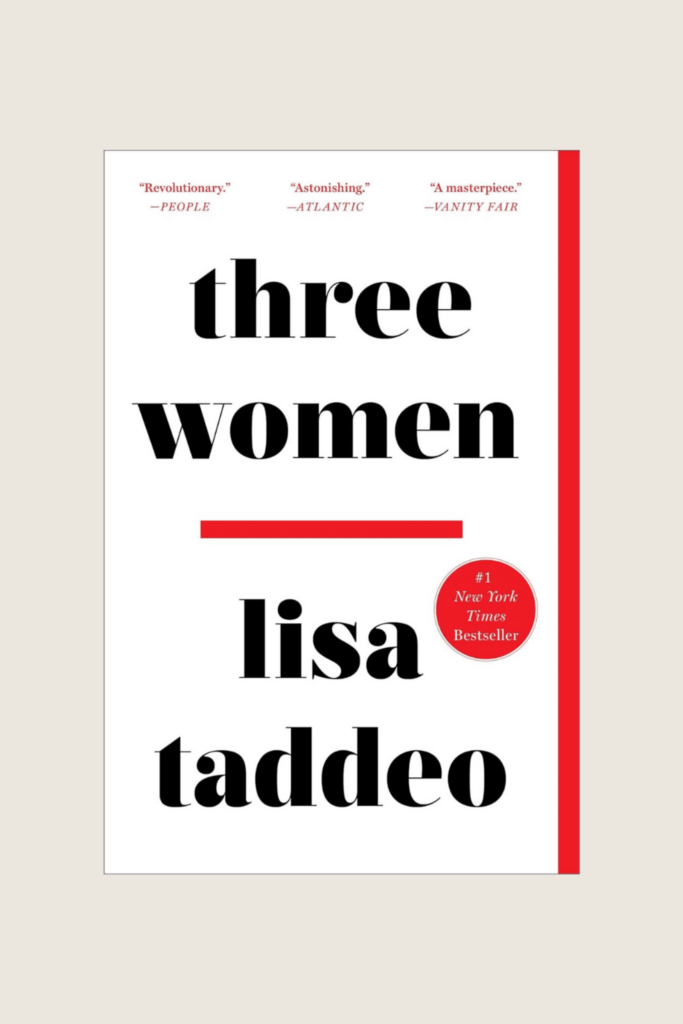I can’t remember the first time I heard about Three Women by Lisa Taddeo, nor how it ended up in my Amazon cart for as long as it did. I do know that somewhere along the line I read the description and thought it sounded interesting enough for me to put on my TBR (to be read) pile.
Little did I know that as soon as I decided to read it that I’d be unable to put it down.

A Warning
Before we proceed, I will mention that this book does contain a lot of graphic sexual scenes and while it does, at times, feel gratuitous, they do serve a larger purpose, which is to explore the power dynamics of each of these three women and their respective relationships.
In the introduction to Three Women, Taddeo says she wanted to write about, “…vital truths about women and desire.”
As Taddeo began her work, she discovered,
We pretend to want things we don’t want so nobody can see us not getting what we need.
What Makes Three Women by Lisa Taddeo Unique?
Lisa Taddeo’s book Three Women is unlike any other book I’ve read.
Based on eight years of research, this book reads more like a novel than it does a nonfiction work of reportage. Lisa Taddeo writes about the lives of three American women, more specifically, she writes about sexual encounters they’ve had – not all of them appropriate or consensual – that have shaped them and impacted how they’ve lived their lives.

The Main Characters
There is seventeen-year-old Maggie who has a sexual relationship with her high school English teacher in North Dakota. We are also introduced to Lina, a young mother in Indiana, whose marriage lacks passion, and who begins an affair with her high school boyfriend. Finally there is Sloane, a successful woman from the Northeast, who is married to a man who encourages her to have sex with both men and women while he watches or participates.

The Takeaway
This is a difficult, but important read.
This book is an honest examination of three very different women and their relationships, and is a mixture of raw, messy, disturbing accounts of power imbalances, sexual violation, and the impacts all of this can have on women and their lives.
We don’t remember what we want to remember. We remember what we want to forget.
-Maggie from Three Women by Lisa Taddeo
This novel is part sisterhood, part cautionary tale. What we learn is that no matter how different each woman is, their experiences are understandable, and therefore, relatable. We cannot but feel compassion for each of the women, and in doing so, we extend our compassion to other women, and to ourselves.
To read a little more about this book, check out The NewYorker’s Review by Lauren Oyler and The Guardian Interview by Hadley Freeman.
Have you read Three Women? I’d love to hear your thoughts.
-Marilyn







Sounds like a great book